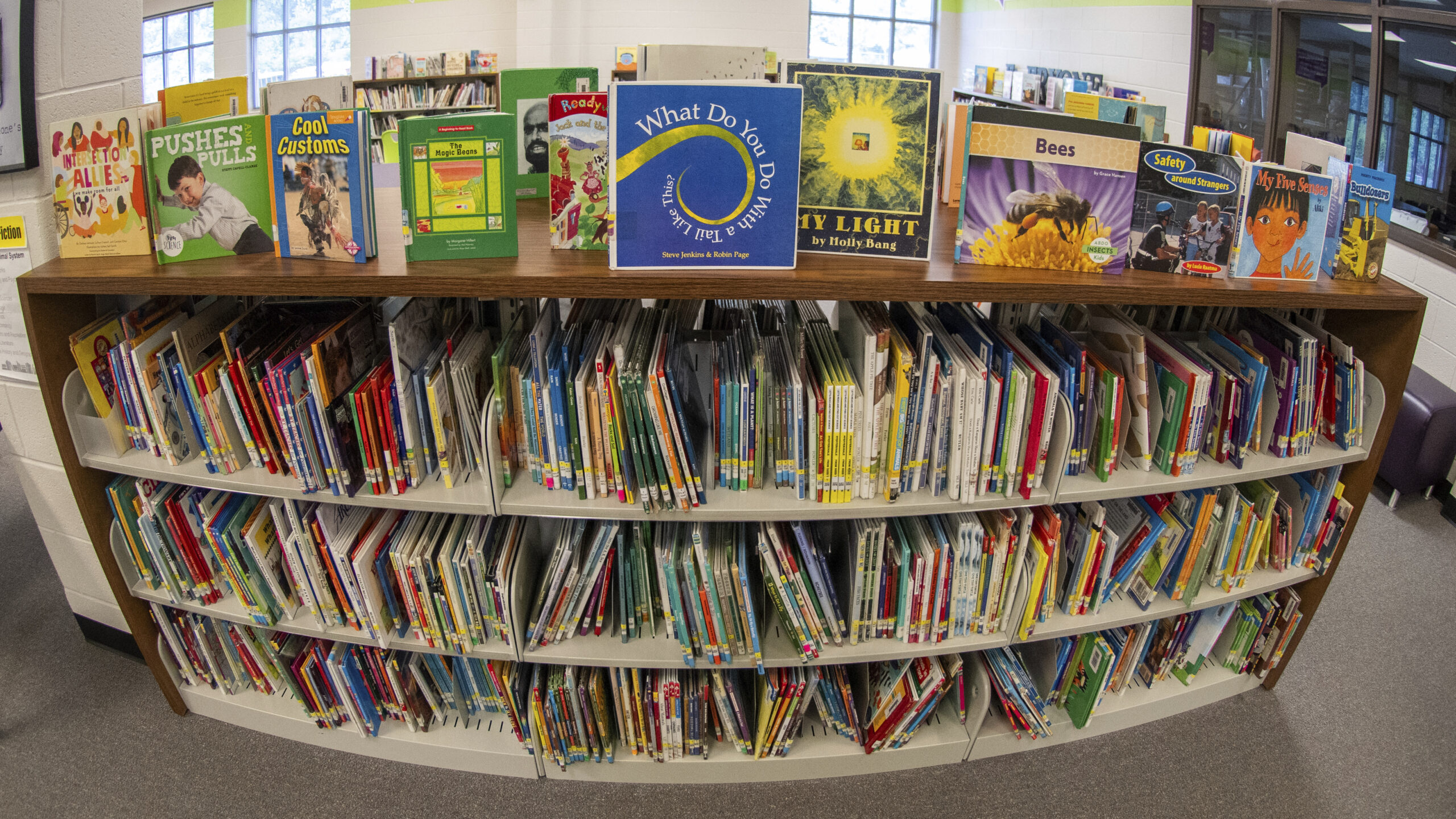Federal funding for Wisconsin library systems might be at risk after President Donald Trump ordered the elimination of an agency that provides financial support to libraries nationwide.
In a March 14 executive order, Trump directed the elimination of the Institute of Museum and Library Services, or ILMS, functions “to the maximum extent consistent with applicable law” as his administration seeks to downsize the federal government.
The agency is responsible for about $295 million in federal funding for libraries and museums, with more than half that amount going directly to state library agencies. Wisconsin received $3.2 million in federal funding during the last fiscal year. Combined with state matching funds, library systems received about $4.9 million under the Library Services and Technology Act.
The money is distributed to 15 public library systems in Wisconsin, according to the state Department of Public Instruction. The money supports workforce development, technological upgrades, summer reading programs and interlibrary loans that allow a library to borrow materials from other libraries.
If funding is eliminated under the order, state schools Superintendent Jill Underly said local communities might have to contribute more funds or cut services.
“It’s going to disproportionately impact rural communities,” Underly said. “I think about the populations that use libraries in rural communities, it’s a lot of elderly [residents], as well as families with small children.”
Underly said rural library systems typically receive a higher percentage of federal grants because they have fewer people. That includes the Northern Waters Library Service, which includes about 30 libraries across an eight-county region of northern Wisconsin. The largely rural district is home to about 157,000 people.
According to the state, Northern Waters is slated to receive about $840,000 in state aid this year. Federal funding represents about 8 percent of that, or roughly $64,000.
Almost a quarter of Northern Waters residents served are 65 or older. The region also has higher poverty rates than the state, and about half of students in the area receive free or reduced school lunches.
Katherine Elchert, the library system’s director, said federal funding helps fund big picture projects like cataloging and database management that her small community libraries couldn’t afford.
“It’s important that people understand the removal of this federal money will potentially hit smaller communities the hardest,” Elchert said.

Library system directors say cuts could affect state staff
News with a little more humanity
WPR’s “Wisconsin Today” newsletter keeps you connected to the state you love without feeling overwhelmed. No paywall. No agenda. No corporate filter.
Elchert said the loss of funding could also lead to cuts of DPI staff. Sue Hendrickson, a Douglas County representative on the library system’s board, said they rely on state staff for expertise and guidance on library services.
“Maybe we could skate by, but our state helpers certainly would disappear, and that would be just a terrible tragedy for us,” Hendrickson said.
Two of the state’s five tribal libraries are also included within the system, including the Lac Courte Oreilles Ojibwe University Community Library. The university’s library has applied for grants from the federal agency to bolster their book collection, make technological upgrades and conduct training. More than $5 million in funding is awarded to Native American library service programs nationwide.
Louise Robbins, a retired professor of library studies at the University of Wisconsin-Madison, said the money might be the only source of funding for some tribal libraries.
“It’s very heavily used by people of all ages, income levels, needs, abilities, and [the order] would really severely damage services and have a huge impact, a multiplying impact, because people often use the funding from ILMS to match other funding,” Robbins said.
Steve Heser, director of the Milwaukee County Federated Library System, said the funding also supports Wisconsin’s online library known as BadgerLink that provides supplemental materials for schools and the resource sharing platform WISCAT that allows interlibrary loans.
“These loans allow for residents from across the state to access materials from across the state and the country,” Heser said.
The state received more than 300,000 requests to share materials last year, and Underly said the state was second in the nation for use of interlibrary loans. Library systems can help fill the gap as one 2024 report found about 20 percent of Wisconsin schools lack a full-time librarian.
While the order seeks to eliminate non-statutory functions, Robbins argued that grants for states and tribes were enshrined in law when Congress reauthorized funding for the program during Trump’s first term. The potential impacts of the order are unclear.
Deputy Labor Secretary Keith Sonderling was sworn in last week as acting director of the Institute for Museum and Library Services. In a statement, he said he’s in “lockstep” with the Trump administration on improving efficiency.
“We will revitalize IMLS and restore focus on patriotism, ensuring we preserve our country’s core values, promote American exceptionalism and cultivate love of country in future generations,” Sonderling said.
The agency employs about 75 workers, according to the American Library Association.
Wisconsin Public Radio, © Copyright 2025, Board of Regents of the University of Wisconsin System and Wisconsin Educational Communications Board.






